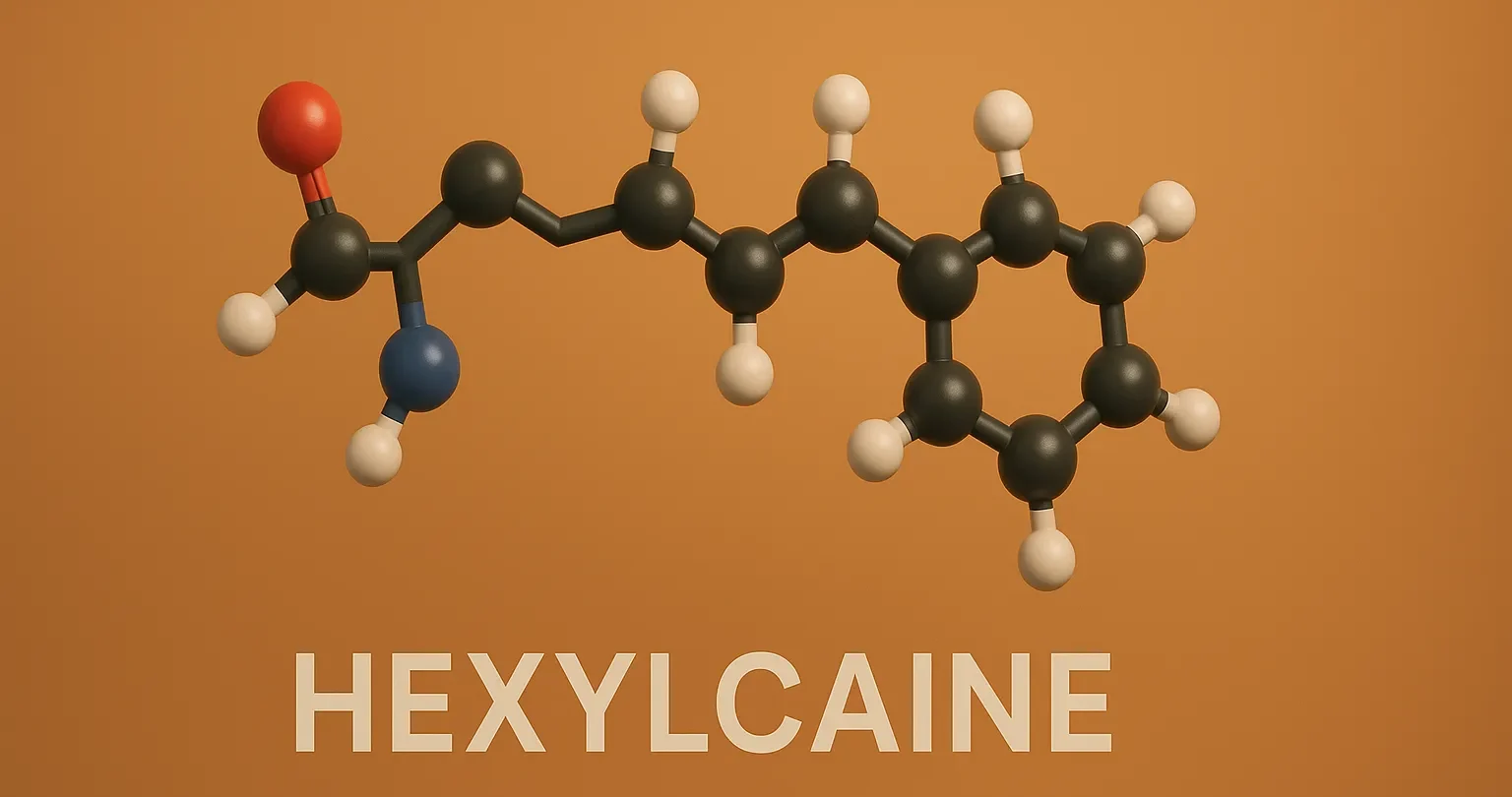Hexylcaine is an ester-type local anesthetic used for surface anesthesia by blocking nerve impulse conduction.
Structure of Hexylcaine
- It is a synthetic local anesthetic with a benzocaine-like structure, featuring a hexyl ester group attached to a benzoic acid core.
- Chemical Formula: C₁₀H₁₇NO₂

Mode of Action
- Sodium Channel Inhibition: Blocks nerve impulse conduction by inhibiting voltage-gated sodium channels.
- Local Vasoconstriction: Minimal vasoconstrictive effects compared to cocaine.
Uses
- Topical Anesthesia: Applied to mucous membranes and skin for numbing before minor procedures.
- Dental Procedures: Used to numb tissues before dental work.
Side Effects of Hexylcaine
- Allergic Reactions: Rash and itching in sensitive individuals.
- Local Irritation: Mild irritation at the application site.

